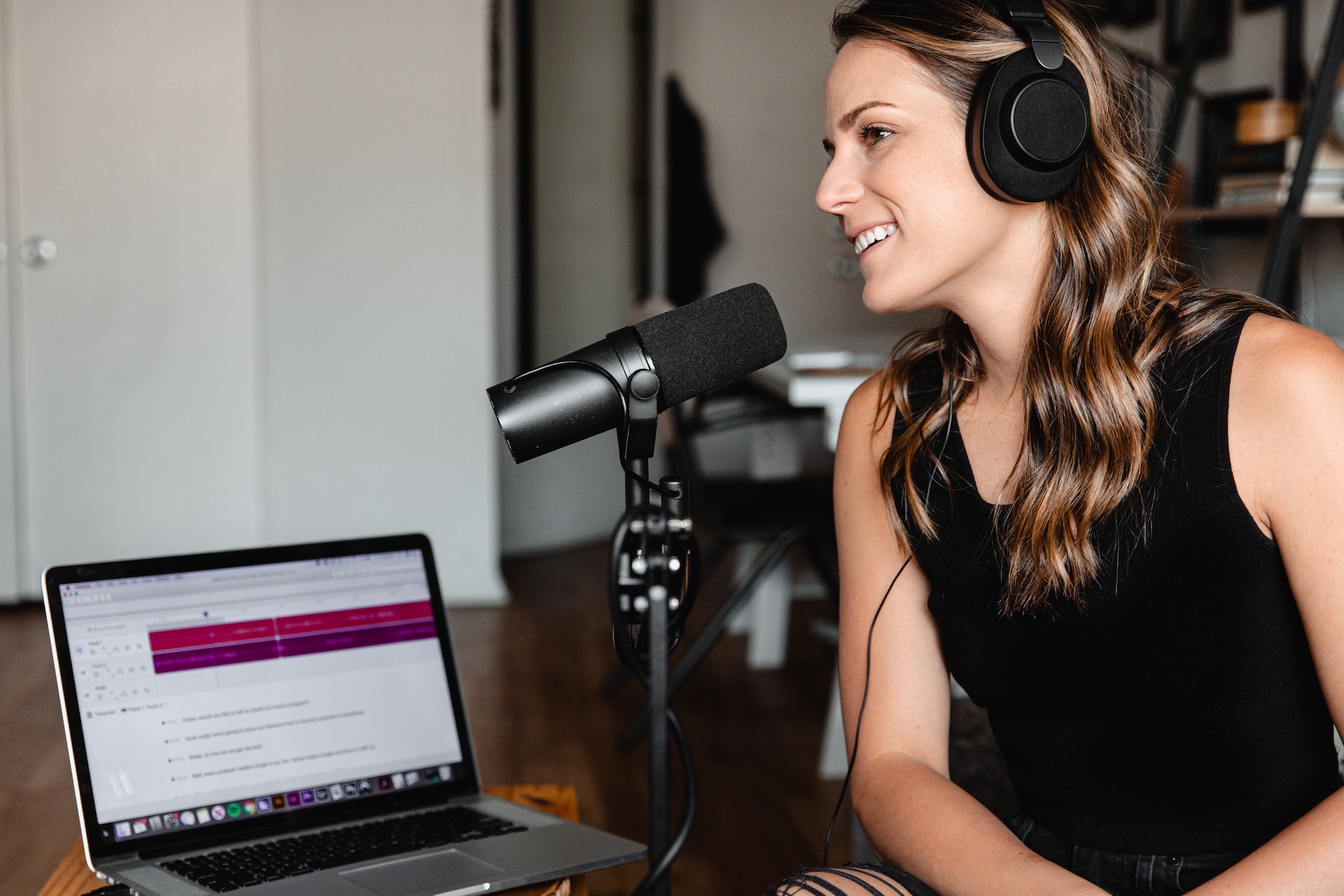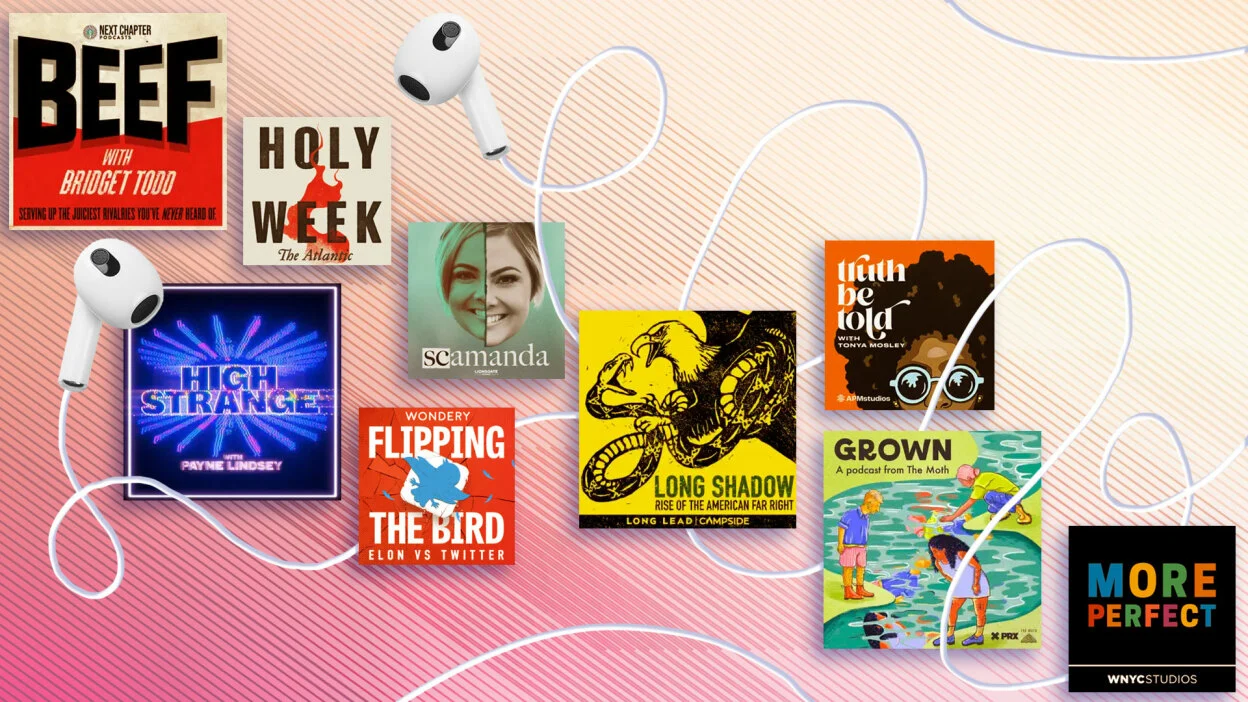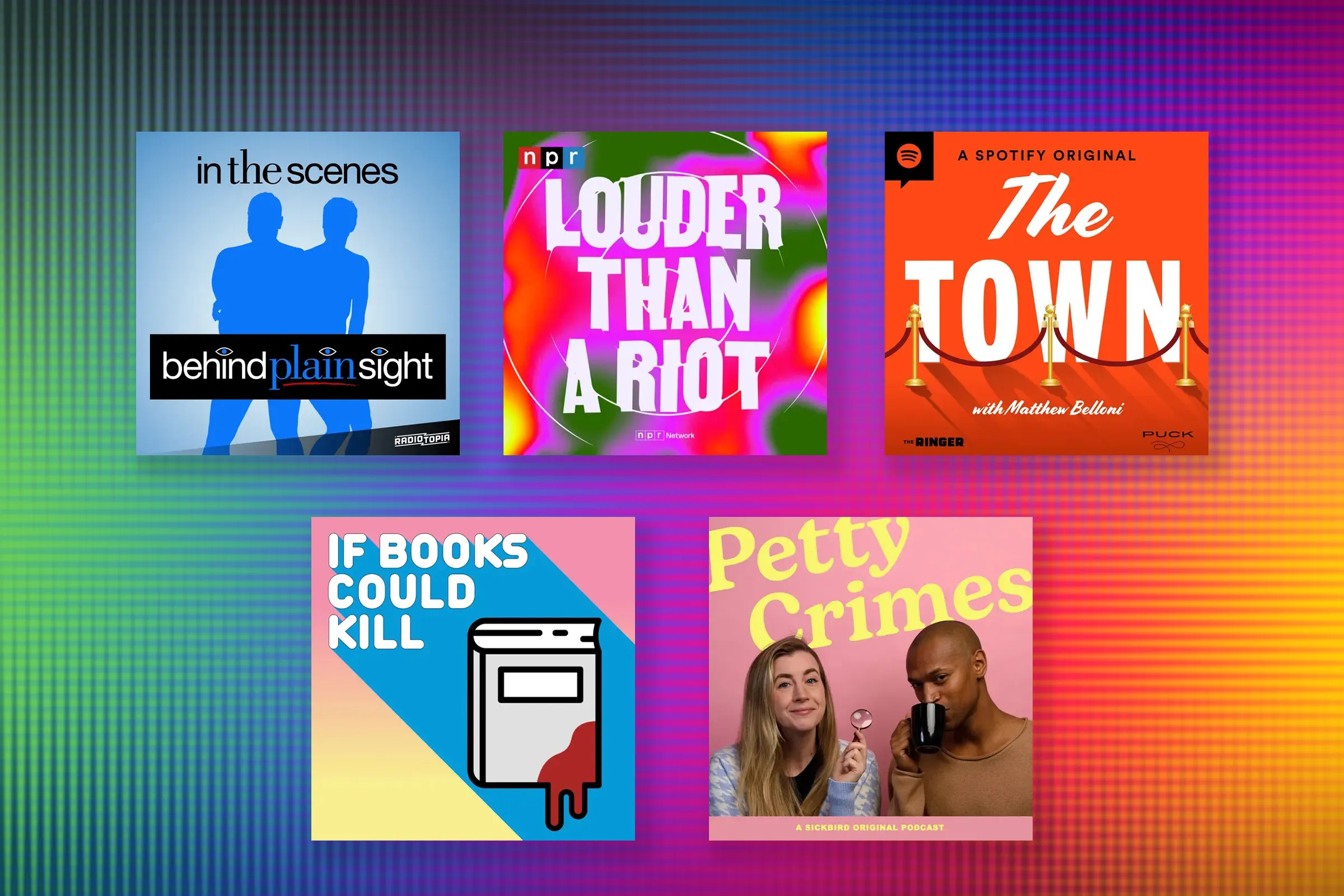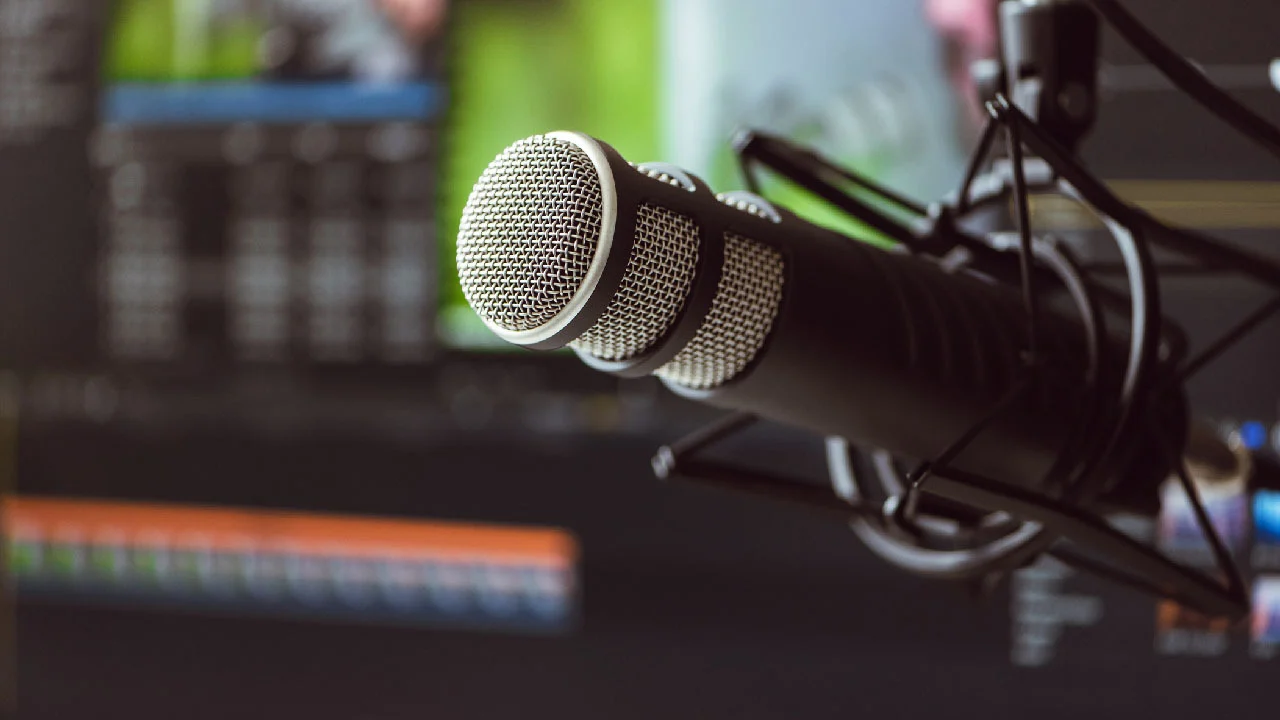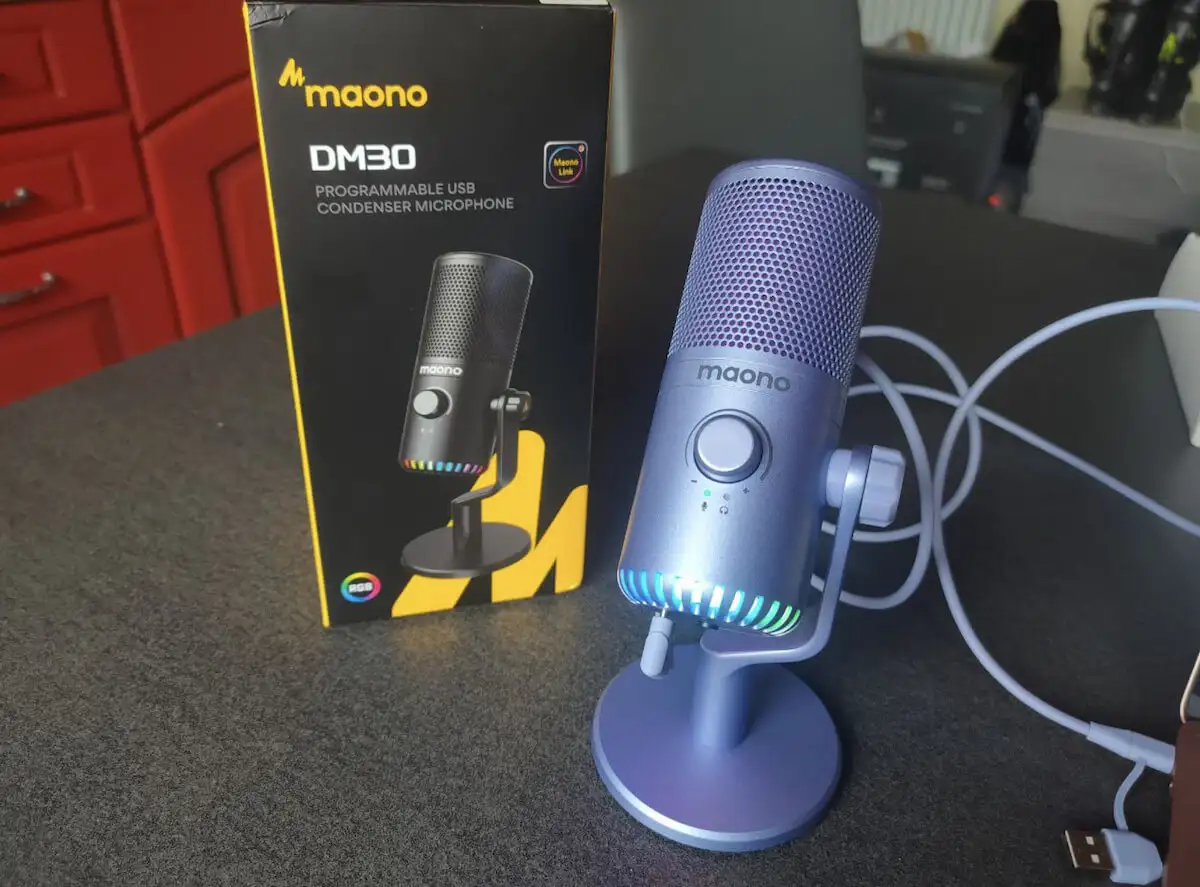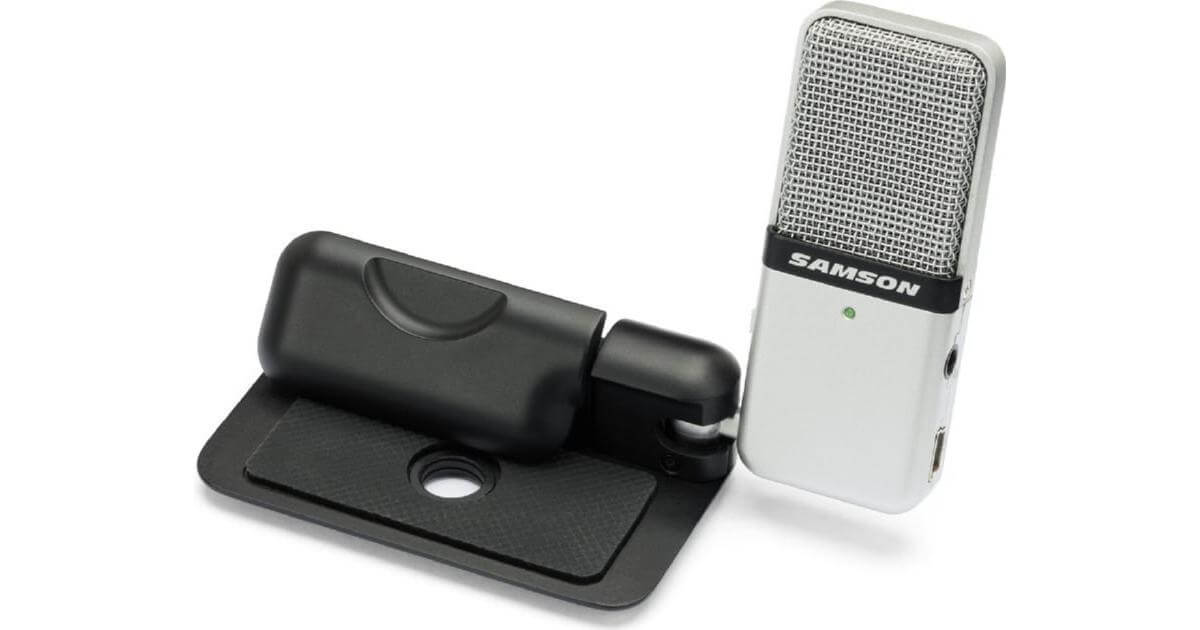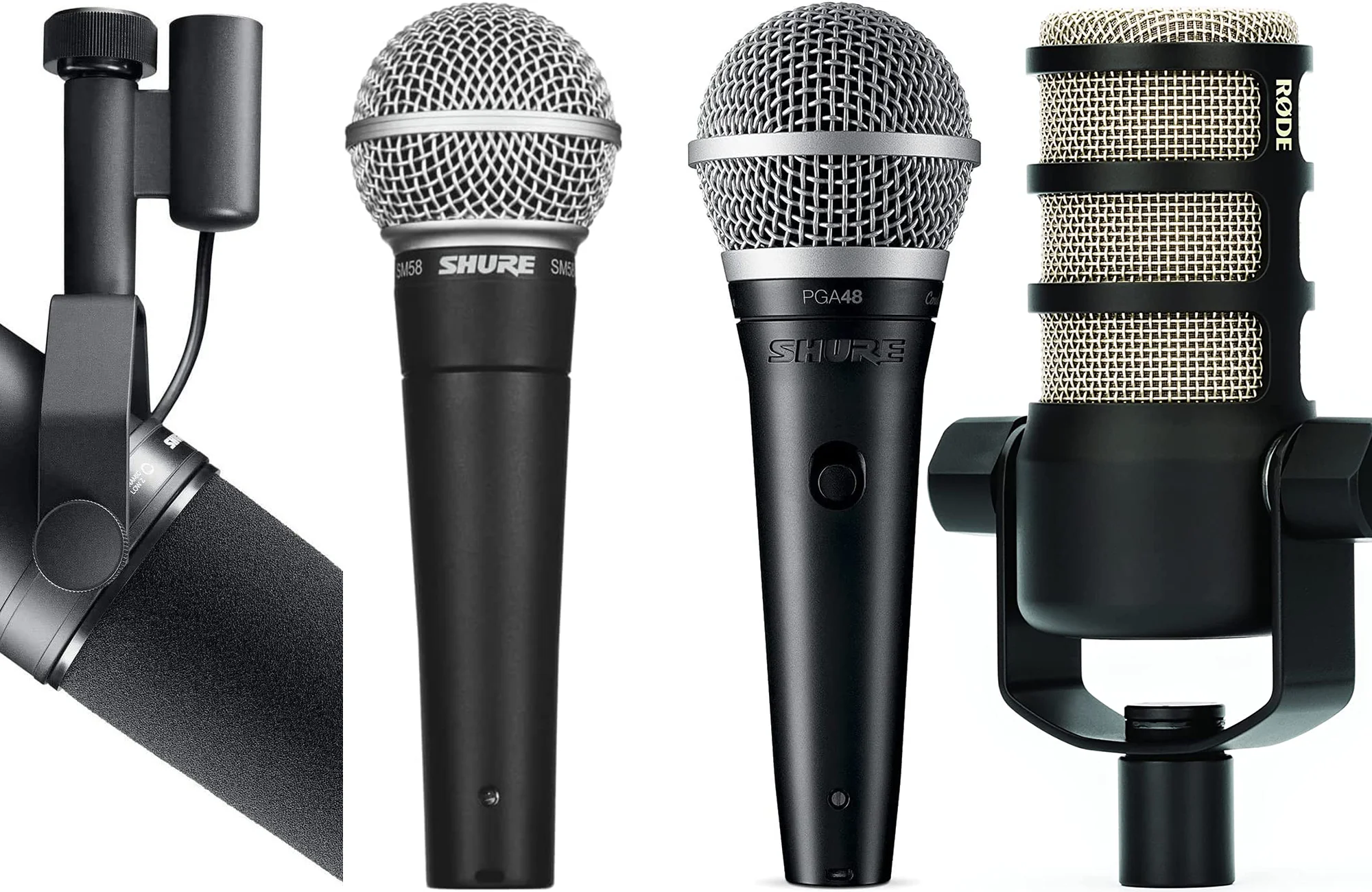Introduction
Podcasts have revolutionized the way we consume audio content. Whether you’re running errands, commuting, or simply relaxing at home, podcasts provide a convenient and engaging way to stay informed and entertained. But have you ever wondered how podcasts actually work?
In this article, we’ll take a closer look at the world of podcasts and explore the process behind creating and listening to these popular audio shows. From the equipment and software required to the steps involved in producing and publishing a podcast, we’ll provide you with a comprehensive overview.
But first, let’s define what a podcast actually is. A podcast is a digital audio or video file that is episodic in nature and available for streaming or download. They cover a wide range of topics, from news and education to entertainment and storytelling. What sets podcasts apart is that they are typically released as a series, with new episodes being published regularly.
The rise of podcasts can be attributed to their accessibility and versatility. With the availability of smartphones and other portable devices, anyone with an internet connection can access and listen to podcasts at their convenience. This accessibility has opened up new avenues for content creators to share their knowledge and stories with a worldwide audience.
Creating a podcast involves a series of steps, from planning and research to recording, editing, and publishing. Content creators invest time and effort into curating engaging episodes that captivate their listeners. It’s not just about recording audio; it’s about providing valuable and entertaining content that resonates with the audience.
Listening to podcasts has become a popular pastime for many people. Whether you’re interested in the latest news updates, exploring niche topics, or simply looking for entertaining stories, there’s a podcast out there for you. Podcast platforms and apps make it easy to browse and subscribe to your favorite shows, ensuring that you never miss an episode.
So, whether you’re a podcast enthusiast, considering starting your own show, or simply curious about this medium, join us on this journey as we delve into the fascinating world of podcasting!
What is a Podcast?
In today’s digital age, podcasts have gained immense popularity as a means of consuming audio content. But what exactly is a podcast?
A podcast is a type of digital media that is created and distributed episodically. It can be in audio or video format, although audio podcasts are the most common. These episodes are typically available for streaming or downloading on various platforms and can cover a wide range of topics.
Think of a podcast as a radio show that you can listen to on-demand. Unlike traditional radio, where you have to tune in at specific times to catch a particular show, podcasts offer the freedom to listen whenever and wherever you want. This makes them incredibly convenient for a modern, on-the-go lifestyle.
One of the key features of podcasts is the ability to subscribe to your favorite shows. This means that whenever a new episode is released, it will automatically be downloaded or made available for streaming to your device. Subscribing ensures that you never miss an episode and can easily keep up with the latest content from your favorite podcasters.
Another important aspect of podcasts is the variety of topics they cover. Whether you’re interested in news, sports, true crime, self-improvement, comedy, or any other niche, you’ll likely find a podcast that caters to your interests. The diversity of content makes podcasts a powerful medium for learning, entertainment, and staying informed.
As podcasts continue to grow in popularity, content creators have embraced this platform as a way to share their knowledge, stories, and ideas. It has democratized the broadcasting landscape, allowing individuals from all walks of life to reach a global audience. This has led to an explosion of creative and engaging podcasts, each with its own unique style and perspective.
Whether you’re looking to expand your horizons, dive deep into a specific subject, or simply enjoy a captivating story, podcasts offer a wealth of entertainment and learning opportunities. So, grab your headphones, find a cozy spot, and get ready to explore the vast world of podcasts!
How are Podcasts Created?
Creating a podcast involves a series of steps that range from planning and researching to recording, editing, and publishing. While the process may vary slightly depending on individual preferences and resources, here’s a general overview of how podcasts are created:
1. Recording Equipment and Software: To start a podcast, you’ll need some basic recording equipment. This typically includes a high-quality microphone, headphones, and an audio interface or mixer to capture your voice or any additional audio sources. Additionally, you’ll need audio editing software, such as Audacity or Adobe Audition, to process and refine your recordings.
2. Planning and Research: Before diving into recording, it’s crucial to spend time planning your podcast episodes. Identify your target audience, determine the overall theme or niche of your show, and brainstorm content ideas. Conduct research on your chosen topics to ensure accuracy and provide valuable insights to your listeners.
3. Scripting and Editing: While some podcasters prefer a more conversational approach, it’s helpful to have a general script or outline for each episode. This ensures that you cover all the necessary points and maintain a consistent flow throughout the show. Edit your script to eliminate any unnecessary information or awkward phrasing.
4. Recording: Find a quiet and acoustically pleasant environment to record your podcast. Connect your microphone to your computer or audio interface and open your chosen recording software. Take your time to record each episode, paying attention to clarity, tone, and pacing. Audio quality is crucial, so ensure that you’re using proper microphone technique and minimizing background noise.
5. Editing and Mixing: After recording, it’s time to edit and mix the audio. Use your chosen audio editing software to remove any mistakes, pauses, or background noise. Enhance the overall sound quality by adjusting levels, applying equalization, and adding music or sound effects. Mixing plays a vital role in creating a polished and professional-sounding podcast.
6. Publishing and Hosting: Once your podcast episodes are edited and ready to go, you’ll need to publish them on a podcast hosting platform. These platforms provide a feed of your episodes that can be distributed to podcast directories like Apple Podcasts, Spotify, and Google Podcasts. Some popular hosting platforms include Libsyn, Podbean, and Anchor.
7. Marketing and Promotion: Simply publishing your podcast isn’t enough to attract listeners. Marketing and promotion are essential to increase your reach and build an audience. Utilize social media platforms, guest appearances on other podcasts, collaborations, and email newsletters to spread the word about your show.
Remember, creating a successful podcast takes time and consistent effort. With dedication, creativity, and a passion for your chosen subject matter, you can create a podcast that captures the attention and loyalty of your audience!
Recording Equipment and Software
When it comes to creating a podcast, having the right recording equipment and software is essential to ensure high-quality audio production. Let’s take a look at the key components you’ll need:
1. Microphone: A good quality microphone is the cornerstone of podcasting. USB microphones, such as the Blue Yeti or Audio-Technica ATR2100x, are popular choices for beginners as they are easy to set up and offer excellent sound quality. For more advanced podcasters, XLR microphones like the Shure SM7B or Rode NT1 are preferred for their professional-grade audio reproduction.
2. Headphones: It’s crucial to invest in a pair of closed-back headphones to monitor your recordings. This allows you to hear any background noise, audio distortion, or inconsistencies in real-time. Look for headphones that provide accurate sound reproduction, comfort, and noise isolation, such as the Audio-Technica ATH-M50x or Sennheiser HD 280 PRO.
3. Audio Interface or Mixer: An audio interface or mixer is necessary to connect your microphone to your computer. USB audio interfaces like the Focusrite Scarlett 2i2 or PreSonus AudioBox USB offer a simple plug-and-play solution. If you require more advanced control over your audio, consider a mixer like the Behringer Xenyx Q802USB or Yamaha MG10XU.
4. Pop Filter and Shock Mount: To improve the audio quality, a pop filter helps reduce plosive sounds caused by bursts of air hitting the microphone. A shock mount, on the other hand, isolates the microphone from any vibrations or handling noise. These accessories can greatly enhance the clarity of your recordings and are often included with microphone bundles or can be purchased separately.
5. Recording Software: There are several software options available for recording and editing your podcast. Audacity is a popular free software with a user-friendly interface, making it a great choice for beginners. Adobe Audition provides more advanced features for professional podcasters, including multi-track editing, noise reduction, and audio effects. Other options include GarageBand for Mac users and Reaper, a flexible and affordable digital audio workstation.
6. Acoustic Treatment: To achieve optimal sound quality, consider adding some basic acoustic treatment to your recording space. This can include foam panels, bass traps, or diffusers to minimize reflections and echo. If a dedicated recording space is not available, soundproofing blankets or moving blankets can help reduce external noise and reverberation.
Remember, while quality equipment can enhance your podcast, it’s equally important to focus on your content and delivery. Invest time in practicing good microphone technique, speaking clearly, and engaging with your audience. With the right equipment and software, coupled with your unique voice and style, you’ll be well on your way to producing compelling and professional-sounding podcasts.
Planning and Research
Before diving into recording your podcast, it’s crucial to spend time on planning and research. This phase lays the foundation for a successful and engaging podcast. Let’s explore the key aspects of planning and research for your podcast:
Identify Your Target Audience: Determine who your target audience is and what their interests, needs, and preferences are. This will help you tailor your content to resonate with them, making your podcast more appealing and valuable.
Define Your Podcast’s Theme or Niche: Choose a specific theme or niche for your podcast. Rather than trying to cover too many topics, focus on a particular subject that you’re passionate about and that aligns with the interests of your target audience. This will help you establish your expertise and differentiate your show.
Brainstorm Content Ideas: Generate a list of potential episode topics and content ideas. Consider what your audience would find interesting, informative, or entertaining. Look for unique angles or perspectives that can set your podcast apart from others in the same genre.
Conduct Thorough Research: Ensure that your episodes are well-informed and accurate by conducting thorough research. Dive into reliable sources, books, articles, and interviews related to your chosen topics. This will not only add credibility to your podcast but also provide fresh insights and angles.
Create Episode Outlines or Scripts: While some podcasters prefer a more spontaneous and conversational approach, others benefit from having a general outline or script for each episode. Outlines can include key points, subtopics, questions, or even a full script. This provides structure and helps you stay on track during recording.
Guest Considerations: If your podcast will feature guests, spend time researching and planning for each guest’s expertise and background. Prepare questions or discussion points in advance to ensure a smooth and engaging conversation. Prioritize guests who can bring unique perspectives or value to your show.
Episode Length and Format: Determine the ideal episode length and format for your podcast. Consider your topic, audience preferences, and the type of content you plan to cover. Some podcasts thrive with shorter, bite-sized episodes, while others benefit from in-depth conversations or storytelling.
Content Calendar: Establish a content calendar outlining the schedule for each episode release. This helps you stay organized and ensures a consistent flow of content. A content calendar also allows you to plan ahead for special episodes or themed series.
Engage with Your Audience: Consider ways to involve your audience in the planning process. Encourage them to share topic suggestions, questions, or feedback. This not only fosters a sense of community but also helps you create content that resonates with your listeners.
Remember, proper planning and research are the building blocks of an engaging and successful podcast. By understanding your audience, defining your niche, and conducting thorough research, you can deliver valuable and compelling episodes that keep your listeners coming back for more.
Scripting and Editing
While some podcasters prefer a more spontaneous and conversational approach, scripting and editing play a significant role in creating a polished and engaging podcast. Let’s explore the importance of scripting and editing your podcast episodes:
Scripting: Having a script for your podcast provides structure and ensures that you deliver your content effectively. Depending on your style, you can opt for a detailed script or a simple outline. A script allows you to choose your words carefully, organize your thoughts, and maintain a consistent flow throughout the episode.
Outline Key Points: If you prefer a more conversational approach, an outline can be helpful to keep you on track. List the key points or subtopics you want to cover in each episode. This helps you stay focused and ensures that you address all the essential elements of your chosen topic.
Practice and Rehearse: Before recording, take the time to practice and rehearse your script or outline. This helps you become more comfortable with the content and improves your delivery. Practice also allows you to identify any areas that may require additional research or clarification.
Avoid Over-scripting: While having a script is beneficial, be mindful of over-scripting, as it can make your podcast sound robotic or unnatural. Strive for a balance between a structured approach and maintaining a conversational tone. Practice improvising within your outlined structure to inject personality and authenticity into your episodes.
Edit for Clarity and Flow: Editing is a crucial step in the podcasting process. Listen to your recorded audio and identify areas that need improvement. Remove any awkward pauses, repetition, or errors, ensuring that the episode flows smoothly. This also helps in reducing the overall duration of the episode, making it more concise and engaging for your listeners.
Elevate the Audio Quality: During the editing process, pay attention to the audio quality. Use noise reduction tools to eliminate any background noise or hiss. Adjust the volume levels to ensure consistent audio throughout the episode. Enhance the sound by applying equalization, compression, or other audio effects to create a polished and professional-sounding podcast.
Add Music and Sound Effects: Consider adding music or sound effects to your podcast to enhance the listening experience. Use royalty-free music or sound libraries to find suitable tracks that complement your content. Be mindful of using music and sounds that align with the tone and theme of your podcast.
Review and Revise: After editing, listen to the final version of your episode with a critical ear. Identify any areas that may still need improvement or fine-tuning. Make necessary revisions to ensure that the episode meets your standards and delivers your intended message effectively.
Engage a Fresh Perspective: Consider having someone else listen to your edited episode before finalizing it. A fresh pair of ears can provide valuable feedback and point out any areas of improvement that you may have overlooked. Incorporate their suggestions to refine the episode further.
Remember, scripting and editing are essential steps to ensure that your podcast episodes are well-structured, engaging, and of high quality. Find the right balance between scripting and maintaining a conversational tone, and take the time to edit and refine your episodes to deliver a captivating and professional podcasting experience.
Publishing and Hosting
Once you’ve recorded and edited your podcast episodes, the next step is to publish and host them. This involves making your episodes available to your audience and ensuring they can easily access and listen to your podcast. Let’s explore the process of publishing and hosting your podcast:
Choose a Podcast Hosting Platform: A podcast hosting platform is where your podcast episodes will be stored and distributed. Popular hosting platforms include Libsyn, Podbean, and Anchor. Consider factors such as storage space, pricing, analytics, and ease of use when selecting a platform that suits your needs.
Create a Podcast RSS Feed: Your chosen hosting platform will generate an RSS (Really Simple Syndication) feed for your podcast. This feed acts as a central hub for your episodes and allows podcast directories to fetch new episodes automatically. The RSS feed includes metadata such as episode titles, descriptions, and episode links.
Submit to Podcast Directories: To reach a wider audience, you’ll need to submit your podcast to popular directories like Apple Podcasts, Spotify, Google Podcasts, and Stitcher. Each directory has its submission process, but most require the submission of your podcast’s RSS feed URL and some additional information.
Create Podcast Artwork: Design eye-catching and professional podcast artwork that represents your show. This artwork will be displayed in podcast directories and on various platforms. It should convey the essence of your podcast and be visually appealing to attract potential listeners.
Write Detailed Show Notes: Create show notes for each episode. Show notes are summaries or descriptions of your episodes that provide additional context and information. Include relevant links, resources, and timestamps for key topics discussed. Show notes help your audience navigate and engage with your podcast more effectively.
Promote Your Podcast: Marketing and promotion are crucial to building an audience for your podcast. Utilize social media platforms, your website or blog, and email newsletters to promote new episodes, share behind-the-scenes content, and engage with your listeners. Collaborate with other podcasters or guest on other podcasts to reach new audiences.
Engage with Your Audience: Foster a community around your podcast by actively engaging with your audience. Respond to comments, messages, and feedback. Encourage listeners to leave reviews and ratings on podcast directories to increase your visibility and credibility.
Track Analytics: Most podcast hosting platforms provide analytics that help you track your podcast’s performance. Monitor metrics such as episode downloads, subscribers, and listener demographics. Analyzing this data can help you make informed decisions about your content and audience engagement strategies.
Consistency and Regularity: Establishing a consistent release schedule is vital in maintaining and growing your listener base. Choose a frequency that works for you, whether it’s weekly, bi-weekly, or monthly, and stick to it. Consistency builds anticipation with your audience and keeps them coming back for new episodes.
Stay Updated with Podcasting Standards: Stay informed about industry best practices, changes in podcasting standards, and new technologies. Keep up with the latest trends and developments to ensure that your podcast remains relevant and meets the expectations of your audience.
By following these steps and utilizing effective hosting and publishing strategies, you can make your podcast easily accessible to your target audience and maximize its reach and impact in the ever-growing podcasting landscape.
Listening to Podcasts
Podcasts have become a popular form of entertainment and information consumption, allowing listeners to explore a myriad of topics and engage with captivating content. Let’s delve into the experience of listening to podcasts and how you can make the most of your podcast listening journey:
Choosing a Podcast Platform: There are various podcast platforms and apps available for you to listen to podcasts. Apple Podcasts, Spotify, Google Podcasts, and Stitcher are among the most popular choices. Explore different platforms to find the one that offers the best user experience and suits your preferences.
Discovering Podcasts: Podcast directories within the chosen podcast platform enable you to discover new podcasts. Browse by categories, browse top charts, or use search keywords to find podcasts that align with your interests. Consider listening to recommendations from friends, social media, or podcast recommendation websites to expand your podcast library.
Subscribing to Podcasts: Subscribing to podcasts ensures that you never miss an episode. When you subscribe to a podcast, new episodes will be automatically downloaded or made available for streaming on your device. Subscribe to your favorite podcasts to stay up to date with their latest content.
Creating a Personalized Playlist: Many podcast apps allow you to create playlists where you can curate episodes from various podcasts. Create personalized playlists based on themes, interests, or moods, allowing you to easily access and listen to a collection of episodes that align with specific topics or preferences.
Listening Options: Most podcast platforms offer different listening options. You can stream episodes directly from the app or download them to listen offline. Take advantage of these options to tailor your listening experience based on your internet connectivity and storage availability.
Engaging with Show Notes: Show notes accompany podcast episodes and provide additional information and resources related to the episode’s content. Utilize show notes to dive deeper into the topics discussed, access recommended books or articles, or follow important links shared by the podcast hosts.
Listening at Your Convenience: One of the advantages of podcasts is their on-demand nature. Listen to podcasts whenever and wherever it suits you – during your daily commute, while exercising, or during leisure time. Podcasts allow you to absorb valuable information or enjoy entertaining content conveniently.
Engaging with the Podcast Community: Many podcasts have robust communities of engaged listeners. Interact with fellow listeners and podcast hosts through social media, podcast forums, or comments sections. Share your thoughts, ask questions, and join discussions to connect with like-minded individuals.
Providing Ratings and Reviews: Show your appreciation and support for your favorite podcasts by providing ratings and reviews on podcast directories. This helps podcasts gain visibility and allows potential listeners to learn more about the quality and value of the podcast.
Continuous Learning and Entertainment: Podcasts offer a wide range of content, from educational shows that teach new skills to entertaining narratives that whisk you away to fictional worlds. Take advantage of podcasts as a means of continuous learning, personal growth, and enjoyable entertainment.
Exploring Diverse Perspectives: Podcasts provide a platform for diverse voices, allowing you to gain new insights and perspectives. Venture beyond your comfort zone and explore podcasts that cover topics you may not be familiar with. Embrace the opportunity to broaden your horizons and challenge your own perspectives.
Podcasts have transformed the way we consume audio content, offering a vast array of choices and a personalized listening experience. Take advantage of these features to explore new topics, engage with captivating stories, and make podcasts an integral part of your audio entertainment and learning repertoire.
Popular Podcast Topics
Podcasts cover a wide range of topics, catering to diverse interests and preferences. Whether you’re looking for educational content, thought-provoking discussions, or engaging storytelling, there’s a podcast out there for you. Let’s explore some popular podcast topics that have gained significant traction in the podcasting world:
True Crime: True crime podcasts have become incredibly popular, delving into real-life crime stories, investigations, and mysteries. They captivate audiences with gripping storytelling and a fascination for human psychology. True crime podcasts like “Serial,” “Criminal,” and “My Favorite Murder” have amassed a dedicated following.
Comedy and Improv: Laughter is a universal language, and comedy podcasts provide an escape from everyday stresses. These podcasts feature stand-up comedians, comedic discussions, improvisational humor, and comedic storytelling. Popular comedy podcasts include “The Joe Rogan Experience,” “Conan O’Brien Needs a Friend,” and “The Dollop.”
News and Politics: Stay informed with podcasts that cover current events, news analysis, and political discussions. These podcasts provide in-depth insights, diverse perspectives, and thought-provoking debates. Popular news and politics podcasts include “The Daily,” “Pod Save America,” and “The Rachel Maddow Show.”
Self-Improvement and Personal Development: Podcasts focused on self-improvement and personal development offer guidance and inspiration for individuals looking to enhance different aspects of their lives, from mental health to productivity and motivation. Popular self-improvement podcasts include “The Tony Robbins Podcast,” “The School of Greatness,” and “Oprah’s SuperSoul Conversations.”
Business and Entrepreneurship: Business and entrepreneurship podcasts provide valuable insights, advice, and success stories for aspiring and seasoned entrepreneurs. They cover various topics such as startups, marketing strategies, leadership, and financial wisdom. Popular business podcasts include “How I Built This,” “The Tim Ferriss Show,” and “Masters of Scale.”
Technology and Science: Keep up with the latest in technology and scientific advancements through podcasts that delve into futuristic concepts, breakthrough discoveries, and discussions on how technology and science shape our world. Popular technology and science podcasts include “TED Radio Hour,” “Radiolab,” and “Reply All.
History and Storytelling: History podcasts take listeners on a journey through time, exploring significant events, forgotten stories, and compelling narratives from the past. With a focus on storytelling, these podcasts bring history to life and make it accessible to all. Popular history podcasts include “Hardcore History,” “The History of Rome,” and “Revisionist History.”
Pop Culture and Entertainment: Pop culture and entertainment podcasts cover everything from movies and television shows to celebrity news, music, and fandoms. They discuss the latest trends, dissect popular media, and provide entertaining conversations for fans. Popular pop culture and entertainment podcasts include “Pop Culture Happy Hour,” “The Rewatchables,” and “The Joe Rogan Experience.”
Health and Wellness: Health and wellness podcasts focus on topics such as fitness, nutrition, mental health, mindfulness, and overall well-being. These podcasts provide valuable tips, expert interviews, and motivation to help listeners lead healthier and happier lives. Popular health and wellness podcasts include “The Model Health Show,” “The Jillian Michaels Show,” and “Happier with Gretchen Rubin.”
Travel and Adventure: Travel and adventure podcasts take listeners on immersive journeys around the world, featuring inspiring travel stories, destination recommendations, and practical tips for exploring new places. Popular travel and adventure podcasts include “The Travel Diaries,” “Zero To Travel,” and “The Rough Guide to Everywhere.”
These are just a few examples of the many podcast topics available. Podcasting offers something for everyone, ensuring that you can find a show that aligns with your interests, passions, and desire for personal growth and entertainment.
Benefits of Podcasting
Podcasting has gained immense popularity in recent years, and for good reason. This audio medium offers numerous benefits for both creators and listeners. Let’s explore the advantages of podcasting:
Accessible and Convenient: Podcasts are easily accessible to anyone with an internet connection. They can be streamed or downloaded on smartphones, tablets, and computers, allowing listeners to enjoy their favorite shows at their convenience. Whether you’re commuting, working out, or relaxing at home, podcasts provide a convenient and flexible way to consume audio content.
Engaging and Personal: Podcasts create a unique sense of connection between hosts and listeners. The conversational style of podcasting allows hosts to share their perspectives, stories, and expertise in a more personal and relatable manner. This fosters a sense of intimacy and engagement that is often missing in other forms of media.
Wide Variety of Content: Podcasts cover a vast array of topics, catering to various interests and niches. Whether you’re interested in news, storytelling, education, self-improvement, or entertainment, there’s a podcast for you. The diversity of content ensures that you can always find a show that aligns with your preferences and provides valuable insights.
On-Demand Listening Experience: With podcasts, you have the freedom to choose what to listen to and when to listen. Unlike live radio or television, podcasts offer an on-demand listening experience. You can easily skip, pause, rewind, or fast forward through episodes, allowing you to customize your listening experience to fit your preferences and schedule.
Long-Form and In-Depth Content: Podcasts often delve into topics in-depth, offering a level of detail and analysis that other mediums may not provide. With episodes ranging from a few minutes to several hours long, podcasts allow hosts to explore subjects thoroughly and engage listeners in a more comprehensive and immersive way.
Learning and Personal Development: Podcasts serve as a valuable educational resource. From informative interviews with experts to podcasts dedicated to personal development and self-improvement, podcasts offer a wealth of knowledge and inspiration. Listeners can expand their horizons, learn new skills, stay up to date with current events, and gain fresh perspectives from trusted sources.
Platform for Creativity and Expression: Podcasting provides a platform for individuals to express their creativity and share their ideas, stories, and passions with the world. It allows aspiring creators to showcase their unique voices and connect with like-minded individuals. Podcasting encourages experimentation and opens doors to new opportunities for content creators.
Opportunity for Community Building: Podcasts often create communities of dedicated listeners who share common interests. These communities foster discussions, connections, and collaborations among listeners. Podcast hosts can interact with their audience through social media, emails, or live events, creating a sense of belonging and camaraderie within their podcast community.
Cost-Effective Marketing Platform: For businesses and brands, podcasting offers a cost-effective means of marketing and reaching a targeted audience. Podcast sponsorships, advertisements, and collaborations allow businesses to connect with listeners who have a genuine interest in their products or services. Podcasts provide a unique opportunity for businesses to build brand awareness and establish themselves as industry thought leaders.
Ability to Multitask and Maximize Productivity: Podcasts can be enjoyed while performing other tasks, making them an excellent tool for multitasking. Whether you’re commuting, cleaning, exercising, or working on mundane tasks, podcasts allow you to engage your mind and learn while accomplishing other responsibilities, maximizing your productivity and making the most of your time.
The benefits of podcasting make it a popular and compelling medium for both listeners and creators. Whether you want to stay informed, entertained, or inspired, podcasts offer a rich and captivating audio experience that continues to shape the way we consume content in the digital age.
Conclusion
Podcasting has revolutionized the way we consume audio content, offering a unique and versatile medium for both creators and listeners. From educational and informative shows to entertaining storytelling and thought-provoking discussions, podcasts have something for everyone.
For creators, podcasting provides a platform to express their creativity, share their expertise, and connect with a global audience. With the right equipment, planning, and editing, creators can curate compelling episodes that captivate, inform, and inspire listeners.
For listeners, podcasts offer a convenient and personalized listening experience. Whether during a commute, workout, or leisure time, listeners can access their favorite shows at their convenience and stay engaged with the content that matters to them. The diverse range of topics and wide selection of shows ensure that there’s always something to pique their interest and provide valuable insights.
Podcasts have also become a catalyst for community-building, fostering connections and discussions among like-minded individuals. Whether through social media interactions, live events, or dedicated online communities, listeners and creators can connect on a deeper level, forming a sense of belonging and shared interests.
The benefits of podcasting go beyond entertainment and education. It has also become a cost-effective marketing platform for businesses, allowing them to reach a targeted audience and establish themselves as industry thought leaders. Through sponsorships, collaborations, and advertisements, businesses can connect with listeners who have a genuine interest in their products or services.
As podcasting continues to grow, it’s important for creators to stay informed about the latest trends, techniques, and technologies. Embracing continuous learning and experimenting with new ideas will help them keep their content fresh, engaging, and relevant.
For listeners, the world of podcasts is ever-expanding, presenting opportunities to explore new subjects, learn from experts, and connect with diverse perspectives. Engaging with the podcasting community, providing ratings and reviews, and sharing recommendations further enriches the overall experience for everyone involved.
The power of podcasting lies in its ability to entertain, educate, and connect. Whether you’re a creator or a listener, the podcasting landscape offers an immersive and rewarding experience that continues to evolve, leaving a lasting impact in the world of audio content consumption.







